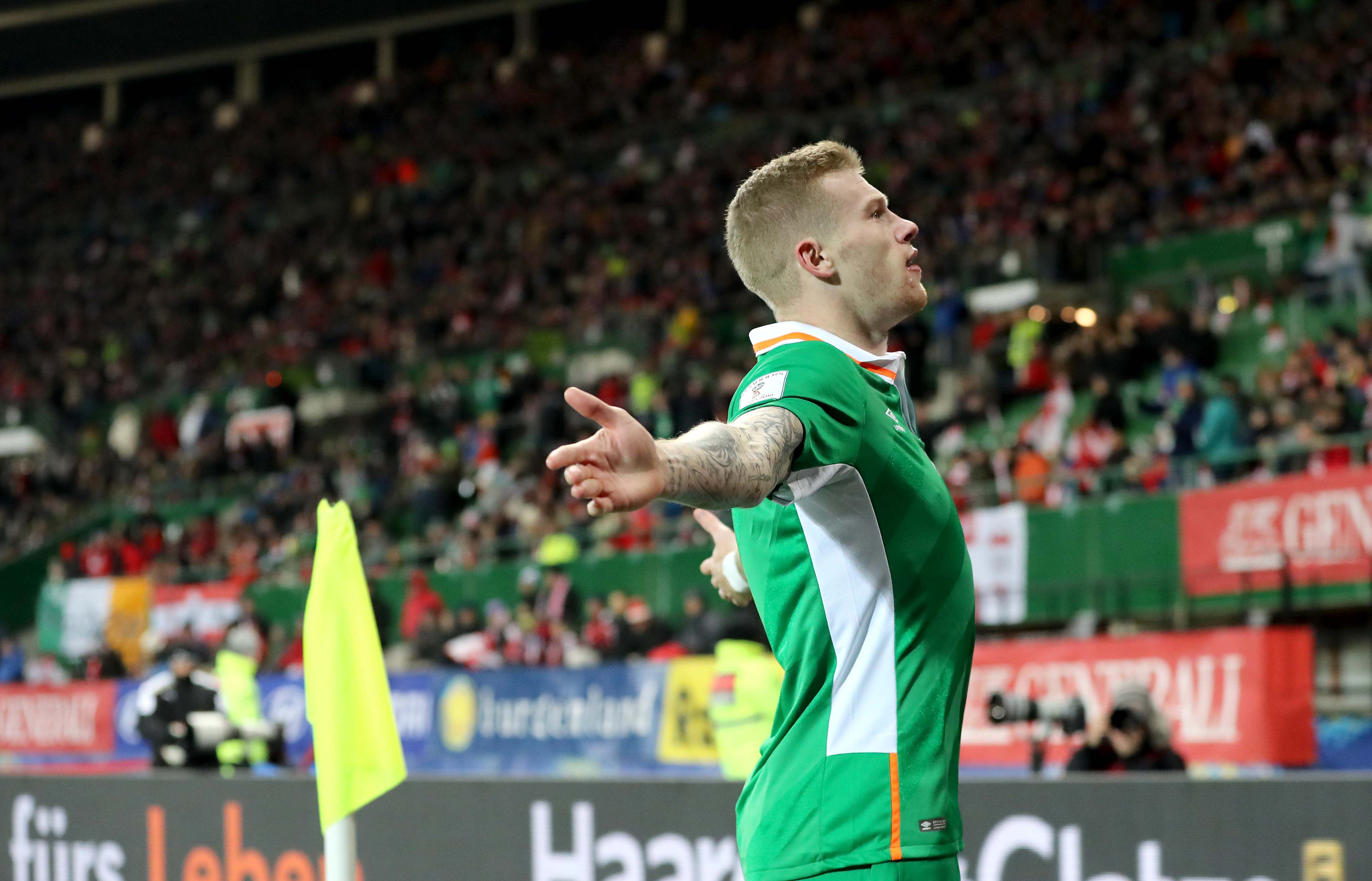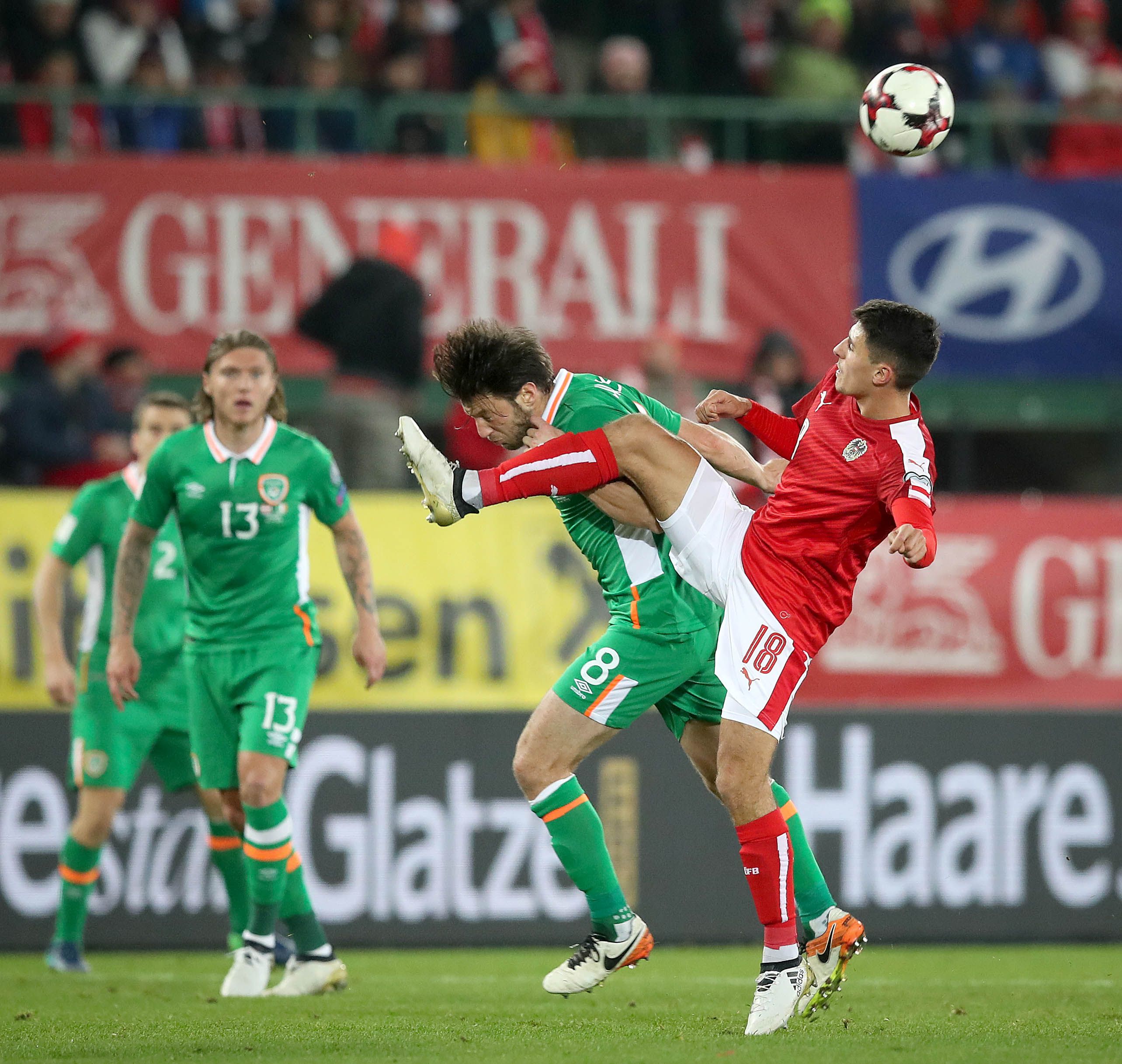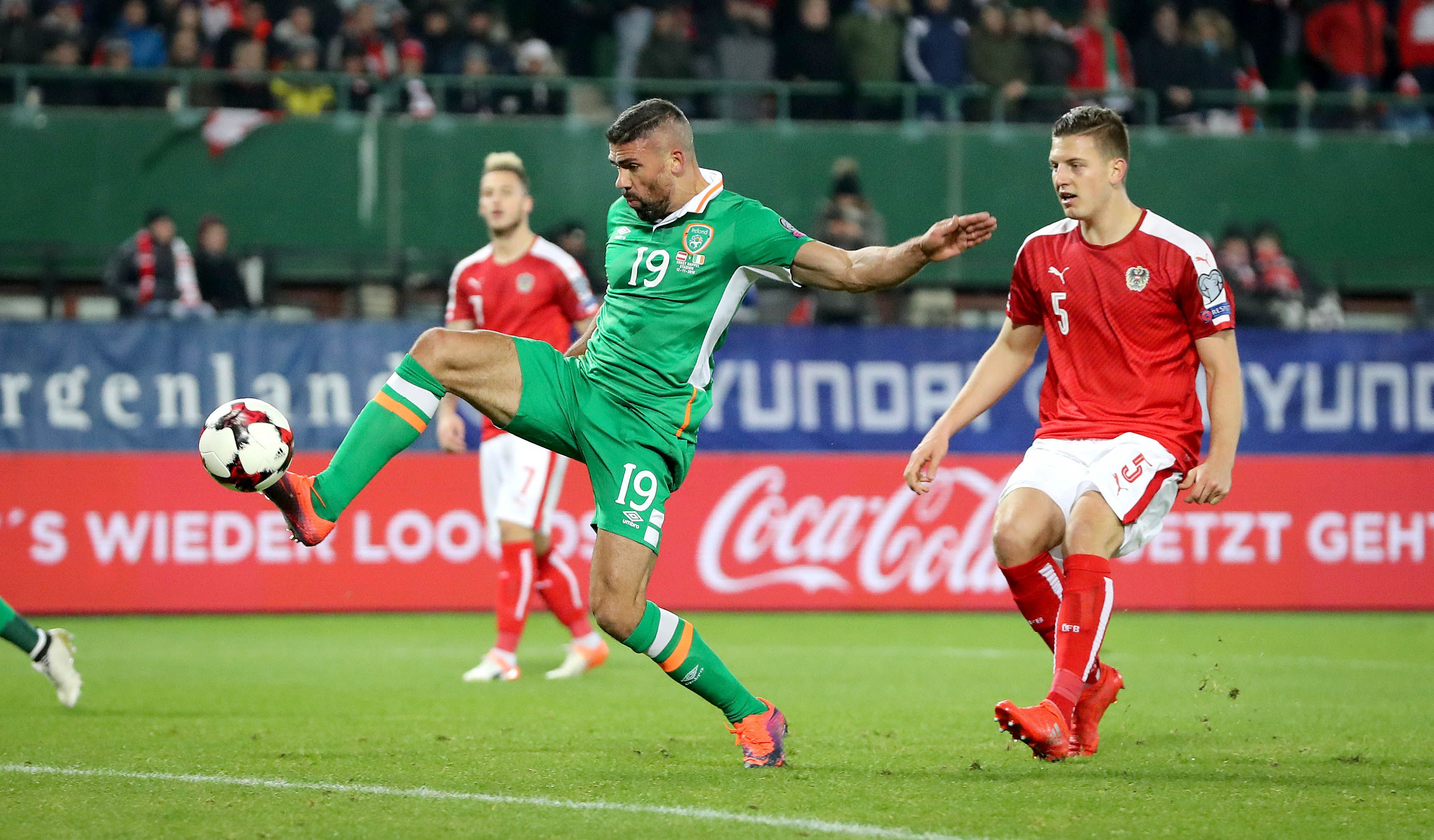

Share
12th November 2016
07:04pm GMT

In the great culture war of Irish football, the battle over when Wes should play and when he should watch helplessly from the bench, this looked like being a defeat for the romantics and a victory for those who think Ireland can’t afford luxuries and should exist on gruel.
Wes looked like becoming Hoolahan, a danger to the team as he gave the ball away on those rare occasions he got it. And he did nothing to take away from the sense that this was a game he was only playing in because of injuries to others.
The truth, of course, is that Ireland, more than most, need a luxury. They have had great wins in recent times, most notably against Germany in the Aviva and against Italy in the summer, but an away victory like this has been a long time coming
Martin O’Neill has created a team of great spirit and this spirit is matched only their limitations. They are dysfunctional as often as they are functional and a team like that needs a presiding genius, and in the absence of one of those, it needs Wes Hoolahan.
The pass Hoolahan played to James McClean early in the second half here in the Ernst-Happel-Stadion will be remembered as one of the defining moments of modern Irish football. A country which might have to go back to Scotland in 1987 for an away victory as significant doesn't have many to choose from. But Hoolahan, who set up Brady in the summer for his goal against Italy, will have his own showreel.
Austria had provided the time and space which was their fatal mistake. Hoolahan gathered the ball from David Meyler and everything else took place in his head: he merely executed his vision on the field.
James McClean’s run was positive and he finished through Ramadan Ozcan’s legs with purpose. After his goals in Moldova, it was the most important example yet of how he has matured and how Martin O’Neill has been critical to that process.

Ireland need McClean’s goals and they feed off his energy, but it is Hoolahan who is the essential component in this Irish team.
He created Ireland's best chance in the first half when he played a one-two with Robbie Brady who crossed but Jon Walters somehow missed from in front of the goal. At that stage, Ireland were finding their way back into the game, but they would have been lost with Wes's vision.
Just before half-time here, it was tempting to think that Austria were running out of ideas. This is not a problem encountered by Ireland, who are rarely troubled by the search for new ideas as they try to break down a team.

Yet, in international football, it doesn’t really matter. Austria had a few ideas and, as they were desperate for a win, they pursued those ideas anxiously.
Ireland, on the other hand, just waited. They started terribly, lulling Austria into a false sense of security, creating the picture of a mediocre side which had nothing going for it.
In the early stages of the first half, Austria could advance into Ireland’s box with worrying ease. They would play a couple of passes to each other and then David Alaba would collect the ball in the box. For the next sequence, they would pass the ball around again and then Marc Janko would head the ball straight at Randolph.
Sometimes those spells would be interrupted by a relatively hopeful moment for Ireland, but they were nearly always isolated moments and whoever was responsible for them was isolated too, separate from his team-mates, like watching a man running uphill trying to jump on a tram.

Hoolahan might try and get forward or Coleman could attempt a run, but each time they did, it seemed detached from the rest of the Irish team who were playing a different game, whatever it was.
There were things Ireland could rely on however. The set piece was always their escape, their footballing equivalent of a safe place, where they could go and gather their thoughts.
Shane Duffy - who was doing much to encourage Austria in defence - was blocked as he charged in on an Irish corner and Jon Walters headed a Robbie Brady free-kick over the bar.
These moments alone created pressure for Austria, psychologically as well. This wasn't just a mediocre team, they always were a threat. A better Ireland team might have punished them on the break and, in the second half, thanks to Hoolahan, Ireland became that better Ireland team.
There were moments of panic before the final whistle but nobody who has suffered watching Ireland would have expected anything else. But in the end, Austria were spent. Ireland had broken them thanks to their spirit and the vision of a man they can never be without.
The war is over.
Explore more on these topics: